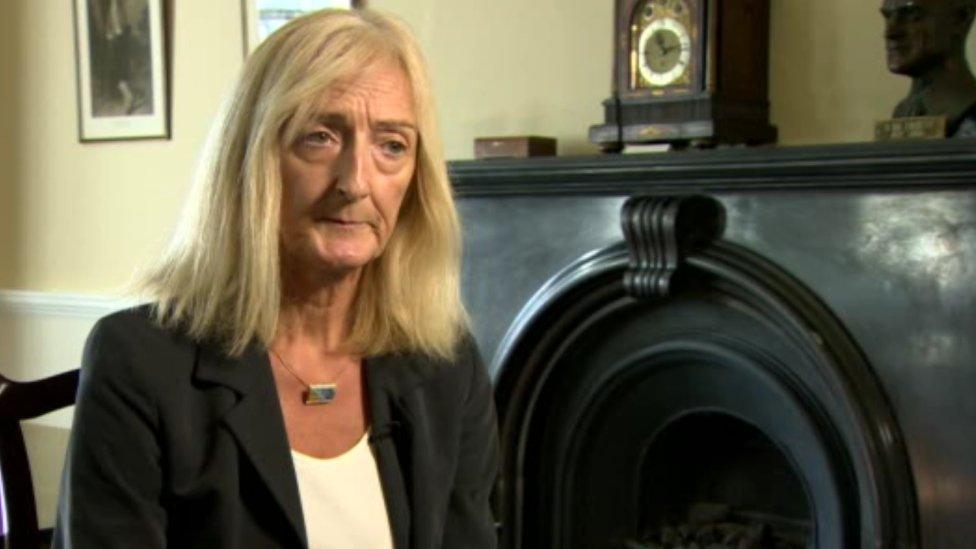Call for Northern Ireland specialist mother and baby unit appeal
- Published
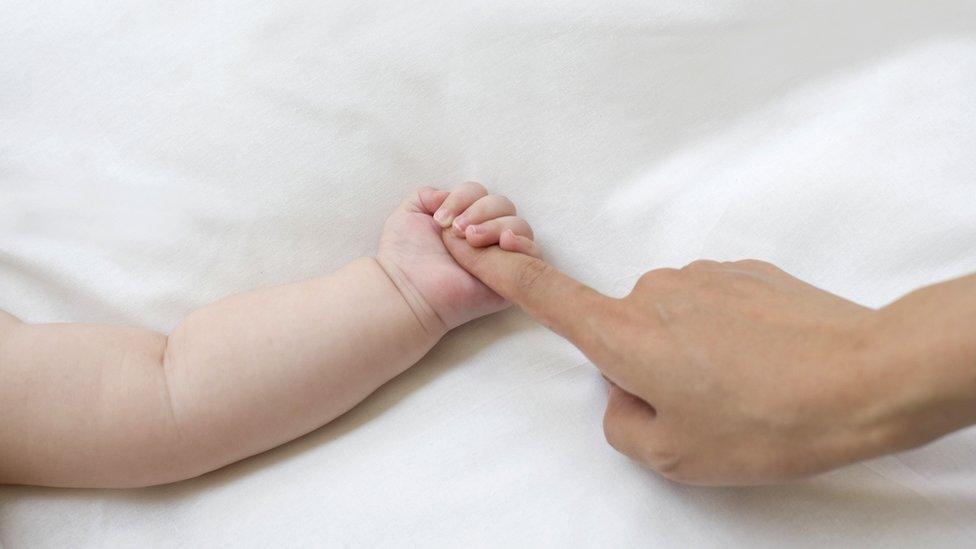
There is no specialist mother and baby unit in Northern Ireland
A woman who suffered severe mental illness after giving birth, has said it is critical Northern Ireland gets a specialist mother and baby unit.
Maria Derbyshire was so ill after having her son Joseph in 2009 she was placed in hospital under the mental health act.
On Tuesday, she joined health care professionals to lobby politicians at Stormont.
About 70 women a year in Northern Ireland require hospital admission.
But during treatment, as there is no mother and baby unit, the woman is separated from her baby.
In England and Scotland there are 17 specialist units.
Mrs Derbyshire said she decided to contact the BBC after hearing a report by health correspondent Marie Louise Connolly last week on perinatal mental health.
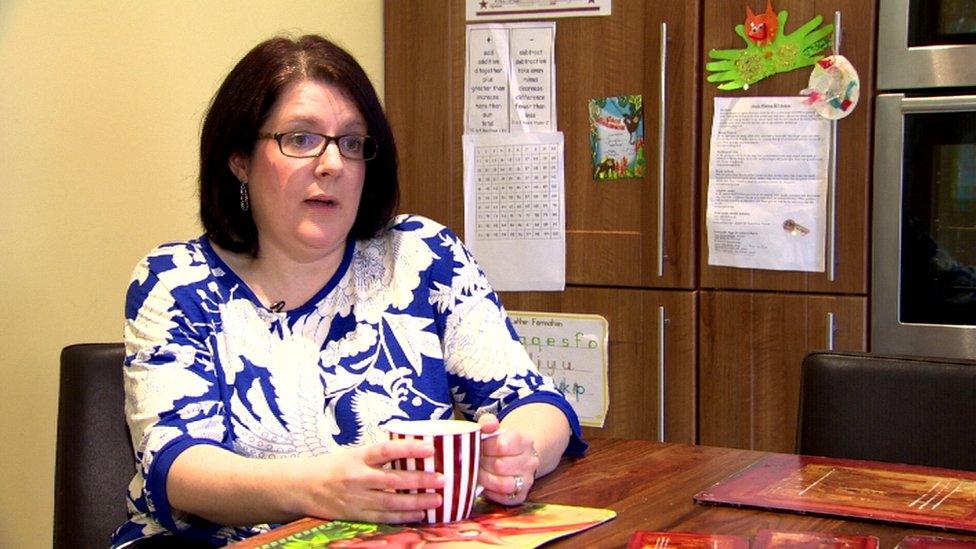
Maria Derbyshire was so ill after having her son Joseph in 2009 she was placed in hospital under the mental health act
"After my first baby, life was very good for a few days. It just fell apart about ten days after my son was born," she said.
"I basically lost touch with reality - I ended up being sectioned.
"I remember going to hospital in the ambulance, I had all these delusions and hallucinations.
"I think I spent around three weeks in a general psychiatric hospital. When I came round I didn't remember I'd had a baby."
Last month the prime minister announced about £390m just for perinatal mental health care.
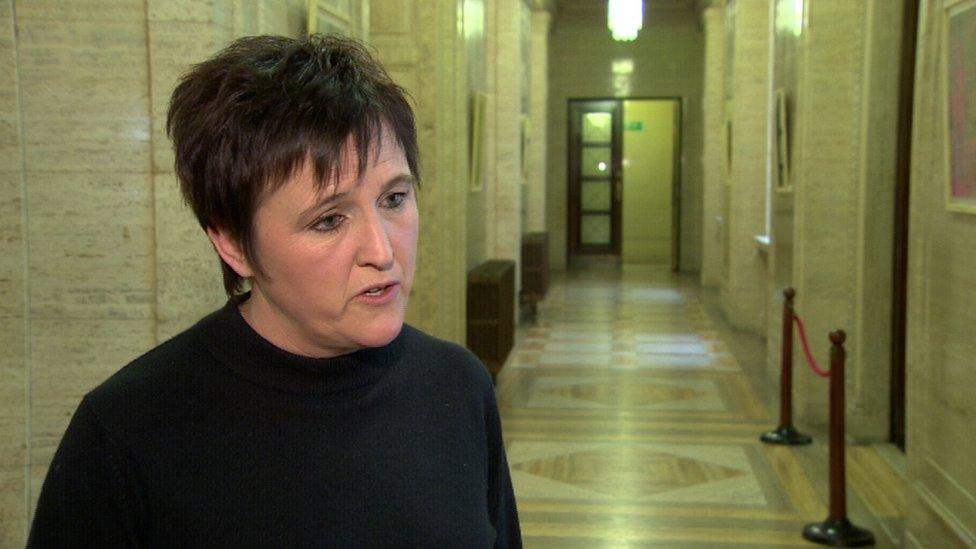
Shona Hamilton said investment should be ring-fenced for services for women
The way the money is divided across the regions means that Northern Ireland should also benefit.
Mrs Derbyshire joined health professionals at Stormont lobbying for the money to be spent entirely on perinatal care here.
Shona Hamilton from the Royal College of Midwives said she is frustrated by the current situation.
"We recognise that across the UK there has been significant investment in mental health services for women," she said.
"Some of that investment should come to Northern Ireland and we would really like to see that ring-fenced for services for women here and the development of very good services - both in the community and in a mother and baby unit "
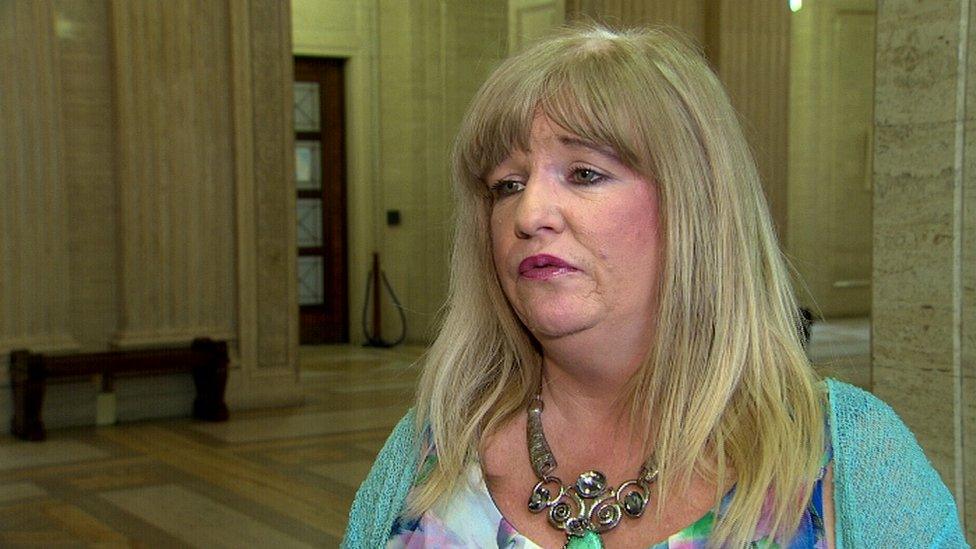
The chair of the assembly health committee, Sinn Féin's Maeve McLaughlin, said the issues had to be tackled
The chair of the assembly health committee, Sinn Féin's Maeve McLaughlin, was among the politicians who met the group.
"It's very clear in terms of the research that to ignore the problem and to continue to treat the problem will cost five times more than actually putting intervention into place," she said.
"We need a regional approach to this - 20% of women will suffer some sort of mental health issue during pregnancy or within a year after birth. That needs to be tackled."
Mrs Derbyshire is now in good health and has had a second baby, a daughter called Lily.
She said her second pregnancy and post natal experience was entirely different and that it was due to the specialist care she received in the weeks before and immediately after Lily's birth.
- Published24 February 2016
